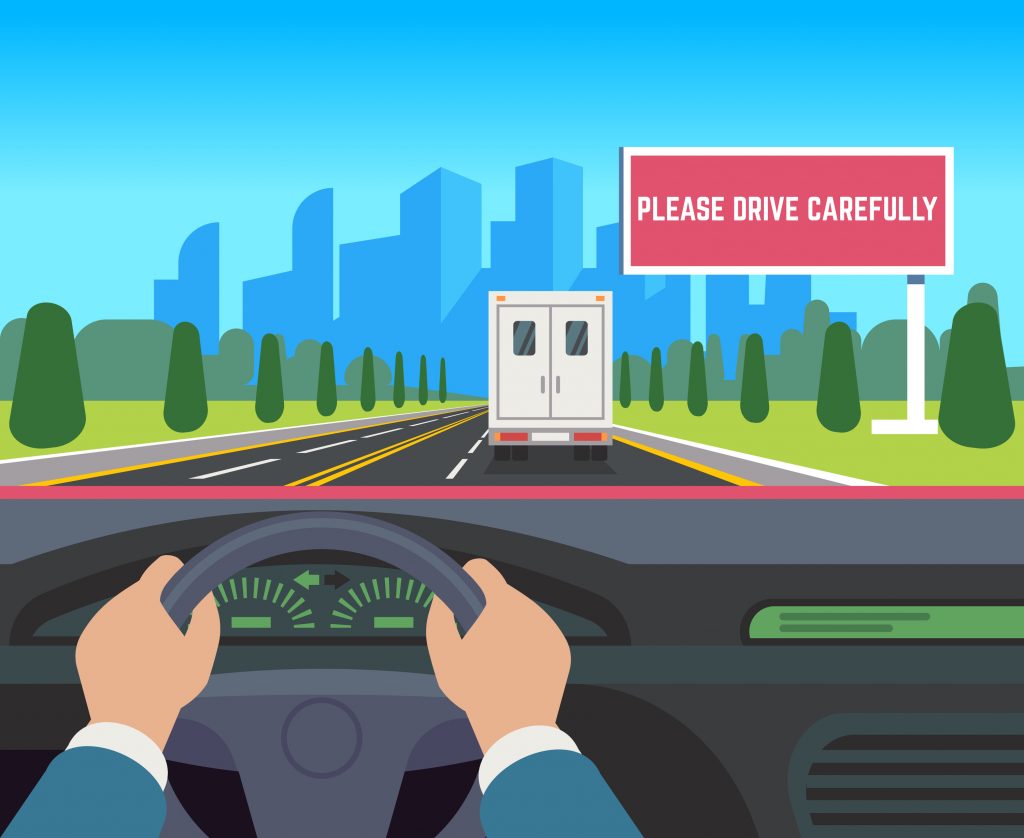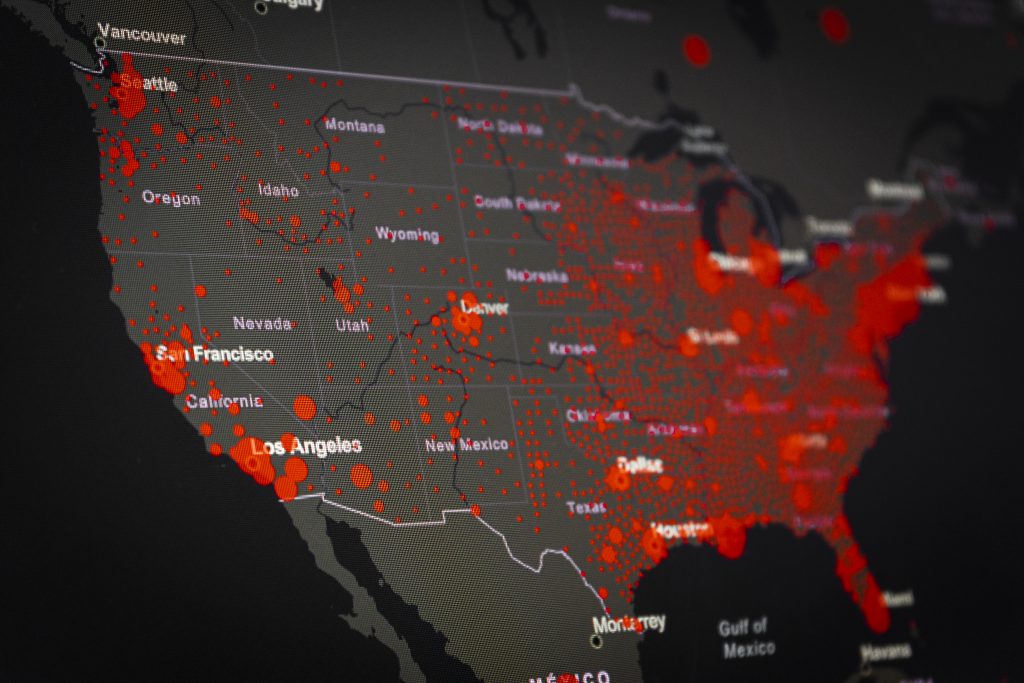Stay In Line With FMCSA’s COVID-19 Regulations

The recent COVID-19 outbreak has turned the world upside down, putting almost every sector on hold. The pandemic however has not managed to bring the transport sector under a complete lockdown. On March 13th, in quick response to the situation and for the first time in history, the FMCSA (Federal Motor Carrier Safety Administration) issued a national emergency declaration rendering hours of service regulatory relief to commercial vehicle drivers transporting essential commodities across the U.S. Since the March 13th declaration, the FMCSA has been consistently updating and expanding tailored regulation, accommodating the current pandemic engulfing the country and the world.
“Matrack Inc. will do due diligence in taking action in response to the FMCSA’s national emergency declaration. There is no such thing as s small precaution during this time, and I hope and aim that any measure taken supports and facilitates our truckers and fleet owners by benefiting especially their tracking and fleet management system during this lockdown period.” says Cam Smith, VP at Matrack Inc.
Pandemic Calls for Adjustments in FMCSA Regulations
As the nation comes to a standstill amid this global pandemic, the demand for emergency goods, such as medical supplies, groceries, and sanitizers, continues to remain at its peak. The situation therefore calls for FMCSA regulation adjustments so that the supply meets the demand adequately, without imposing extra pressure on truck drivers to adhere to every rule by the FMCSA. In response to the nationwide COVID-19 outbreak, the FMCSA announced the nationwide exemption, following President Donald Trump’s declaration of a national emergency.
Initially, the exemption was confined to suspend the hours of service regulation and fmcsa 34 hour restart rule for transportation of medical supplies such as testing and diagnostic kits, masks, sanitizers, gloves and other safety equipment essential to address the COVID-19 pandemic. However, as desperate times call for desperate measures, the FMCSA recently decided upon an expansion of exempting regulations that now include transport of groceries, food, and raw materials (e.g. paper and alcohol).
What are the FMCSA updated regulations in response to the COVID-19 outbreak?
- The expanded regulations of the FMCSA pertain to the hours of service suspension. The exemption includes relief from all the hours-of-service regulations in 49 CFR part 395, which means maintaining a logbook or ELD login is not mandatory.
- Transportation of medical supplies and emergency equipment crucial to COVID-19 treatment and diagnosis
- Transportation of safety equipment and equipment necessary to combat the spread of COVID-19 such as gloves, soap, sanitizers, disinfectants, masks, etc.
- Transportation of food, groceries, livestock, etc.
- Transportation of precursor material like paper, plastic, alcohol and other immediate raw materials required in the manufacturing of essential commodities
- Transportation of fuel
- Transportation of designated persons, by federal, state or local authorities, for quarantine or medicalisolation
- Transportation of medical authorities and persons in medical services
Apart from hours of service related exemptions, the FMCSA has also waived off medical card and license related regulations such as:
- If a driver possesses a valid medical card as of February 29, 2020, that was valid for at least 90 days, the driver is permitted to drive with the expired certificate until June 30, 2020. This exemption is applicable to both CDL and non-CDL CMV drivers
- If the driver’s license was unable to be renewed due to the outbreak, and was valid as of February 29, 2020, and expired or downgraded on or after March 1, 2020, the driver is granted a waiver for an expired license until June 20, 2020. Commercial driver’s licenses (CDL), commercial learner’s permits (CLP), and non-CDL licenses are eligible for this exemption.
What is included in Direct Assistance?
- Direct assistance caters to immediate restoration of essential services and supplies, such as medical equipment, food and fuel.
- Hours worked providing direct assistance under the emergency relief exemption does not count under the 60-70 hour rule. Also, the hours of service regulations do not apply if the driver is engaged with providing direct assistance under the emergency relief exemption.
- This regulation only serves the need of the situation caused by the pandemic and is not applicable to routine commercial drivers.
“Direct assistance terminates when a driver or commercial motor vehicle is used in interstate commerce to transport cargo or provide services that are not in support of emergency relief efforts related to the COVID-19 outbreaks or when the motor carrier dispatches a driver or commercial motor vehicle to another location to begin operations in commerce… Upon termination of direct assistance to emergency relief efforts related to the COVID-19 outbreaks, the motor carrier and driver are subject to the requirements of 49 CFR Parts 390 through 399, except that a driver may return empty to the motor carrier’s terminal or the driver’s normal work reporting location without complying with Parts 390 through 399,” the declaration reads.
Safety Considerations and Limitations of the Declaration

Although the country is in a state of emergency, there are some measures that cannot be exempted. The government is putting together the maximum it can to ease the situation. However, safety always comes first and therefore the declaration imposes specific restrictions, while the following rules are still mandatory :(
- The expanded declaration comes with a precondition that routine commercial deliveries do not come under this rule. Therefore, routine commercial deliveries or deliveries without a minimal amount of material qualified for emergency requirement or mixed load are not permitted to take advantage of this expanded declaration.
- It also compels that a driver transporting property must receive a minimum of 10 hours off-duty, and a driver transporting passengers must receive a minimum of 8 hours off-duty, after he completes a delivery.
- It is important that a commercial motor vehicle complies with State laws and regulations. Violation of speed limits and other traffic restrictions will not be accepted.
- It is mandated that the drive pulls over and gets some rest if the driver’s ability or alertness is impaired or likely to become impaired due to any illness, fatigue, etc.
- If a driver holds a short-term medical card of 30 days, he does not qualify for the medical card COVID-19 exemption. The card issued has to have 90 day validity.
- The exemption does not suspend drug and alcohol testing. In case of an accident, a post-accident test must be conducted unless the driver has a valid reason to document why the testing was not conducted.
- Refusing DOT testing or leaving the collection site without providing a specimen is considered equal to testing positive and hence is rendered as rule violation.
- A fatal accident, injury or property damage is considered as a criminal and civil offense irrespective of the exemptions. Carriers and drivers are still expected to operate safely and responsibly despite exemptions.
“A lot of our drivers like the Matrack ELD solution, which includes a free device and month-to-month service subscription. No contract. Cancel anytime. We keep drivers safe by recording driving data, such as hours of service, in compliance with DOT regulations. ELDs allow edits, but also retain the original data.”
– Cam Smith, VP at Matrack Inc
States Take Additional Measures in Response to COVID-19

The FMCSA has given discretion to states to decide upon the implementation of the aforementioned waivers. Therefore, while some states might recognize and abide by the exemptions, some may choose not to abide. Some states like Ohio, Missouri, Texas and Michigan, have extended their measures towards the transportation sector, in the fight against COVID-19. Michigan has waived off seasonal weight restrictions on motor carriers and drivers, while Missouri permits up to 10% more than their licensed weight on its highways. Ohio has suspended hours of service rules on transportation of consumer goods and medical supplies. These waivers are solely applicable to essential supply pertaining to COVID-19 alone.
Until the Pandemic Lasts
The aforementioned exemptions and waivers are said to be valid for a period of three months only. The exemptions do not demand any extra documentation. However, ordinary business records, such as the bill of lading, may be useful later for convenience purposes. The FMCSA is also working closely with the States to ensure that adequate truck parking and facilities are available and drivers are not hassled while transporting emergency supplies.
“These tough times shall pass. We’re all in this together. We will constantly update the blog as more information pours in. In the meanwhile, stay safe, happy and healthy” ends Matrack Inc VP Cam Smith. Until then you could also use a keep on trucking app to stay updated with trucking line.


